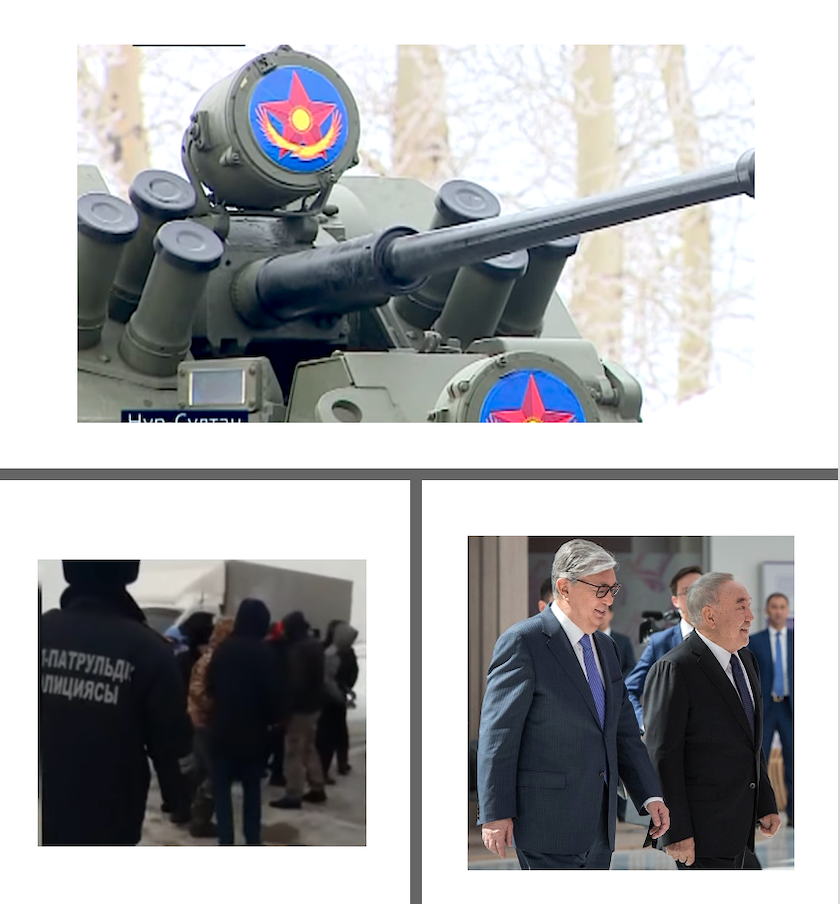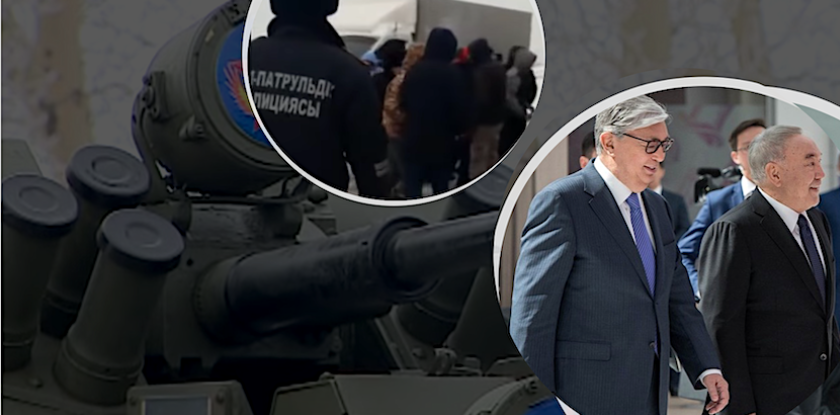The thing is that the emergency rule imposed in Kazakhstan on March 15, 2020, following the order of President Kossym-Jomart Tokayev may not end on April 15, 2020, at 7 a.m. Several circumstances testify in favor of this rather a pessimistic forecast.
The Kazakhs are slowly getting used to living in a cardinally new world. The world in which the movements of people, transport, goods are strictly limited and where the task of the everyday survival concerns not just the citizens and the business and the state itself.
With that, the already tense military, political, trade and economic confrontations around the globe did not end or even weaken in these new conditions. Rather, they have temporarily stepped into the background due to the necessity of solving the current problems in an urgent fashion.
Under these new conditions, it pains us to admit that the Kazakh authoritarian political system and the «super-presidential vertical» are going to be more stable and efficient than the political systems and state apparatuses of the democratic countries. Not only thanks to its strictness and efficiency but the years-long habit and the readiness of the overwhelming majority of the Kazakhs to, first, obey the authorities and, second, survive in most dire of the circumstances.
And, of course, the «patriarchization» of the Kazakh and particularly of the Kazakh-speaking society is playing an important part in this for now the familial and social ties are becoming the main asset that is helping many people to survive.
Meanwhile, judging by the information in the press and on the Internet, the coronavirus pandemics may last at least until the end of the current month or perhaps even for several years. Under such circumstances, Akorda and the Library will constantly find themselves tempted to prolongate the emergency rule regardless of how many citizens are actually affected by the coronavirus.
If only because Kazakhstan shares the borders with China and Russia and, through the Caspian Sea, with Iran. And if a second (third) wave of the pandemics starts at some part of the world, it will be quite logical to protect oneself from it. Especially since, to prolongate the state of emergency, it is enough to sign yet another Presidential decree. Obviously, one cannot do it indefinitely, however, history knows examples when the state of emergency had been in effect for decades.
 This is unlikely to happen in Kazakhstan, however, we do allow for the possibility that the emergency rule will stay in effect longer than expected. The thing is that the goal of preserving the internal political stability amid the power transition in the country can be easily achieved in the context of the emergency rule. And the absence of a civic society in Kazakhstan allows Akorda and the Library not to worry too much about a possible active resistance on the part of the citizens.
This is unlikely to happen in Kazakhstan, however, we do allow for the possibility that the emergency rule will stay in effect longer than expected. The thing is that the goal of preserving the internal political stability amid the power transition in the country can be easily achieved in the context of the emergency rule. And the absence of a civic society in Kazakhstan allows Akorda and the Library not to worry too much about a possible active resistance on the part of the citizens.
Of course, the Kazakhs are going to get tired of the emergency rule and of all the limitations it entails. However, no one precludes the authorities from slowly softening the regime as well as conducting all the necessary political actions, including elections, within its framework.
The likelihood of this scenario is strengthened by the fact that it is yet unknown when the supreme power transition is going to end and who will replace Nursultan Nazarbayev. Which means that the Kazakh ruling elite will benefit from the exclusion of their fellow citizens from the internal political developments; the exclusion that is guaranteed by the emergency rule.




